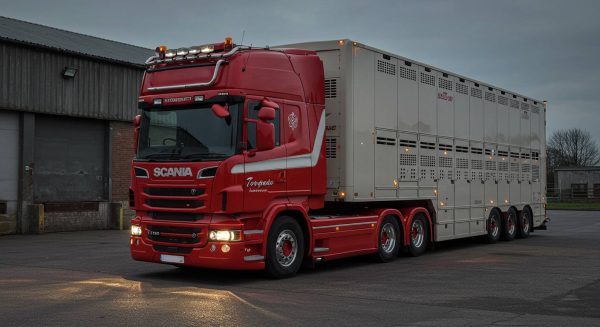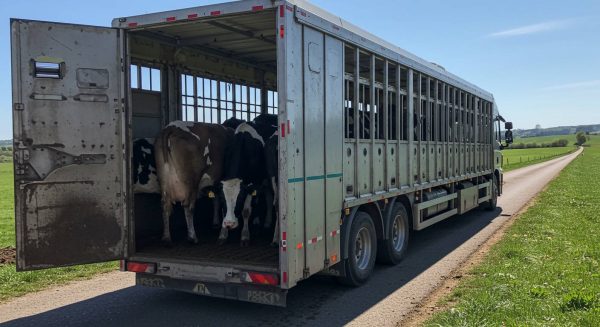The rules for livestock transport in the UK are comprehensive and strictly enforced. Whether you’re a farmer moving your own animals or a professional haulier, understanding these regulations is essential for legal compliance and animal welfare. The UK livestock transport rules apply to all commercial movement of farm animals, including cattle, sheep, pigs, and poultry.
Driver Licensing and Qualifications for Livestock Transport UK
To transport livestock in the UK for commercial purposes, every driver must hold both appropriate driving qualifications and specific animal transport certifications. This starts with a valid driving license suitable for the vehicle weight and type. Additionally, drivers need a Certificate of Competence for animal transport. For journeys exceeding 65 km, drivers must also obtain either a short- or long-journey transport authorisation, depending on the duration of travel. LANTRA offers the required qualifications and can direct you to approved training providers in your area. This comprehensive training ensures drivers understand both the practical aspects of animal handling and the legal requirements of livestock transport regulations.
Vehicle Requirements for UK Livestock Transport
Vehicles used for livestock transport must meet specific UK standards that go beyond general haulage requirements. The vehicle must feature appropriate ventilation systems with temperature monitoring capabilities, non-slip flooring with suitable bedding, and sufficient height clearance for the species being transported. Partitions should be available to separate different groups of animals when necessary, and the vehicle design must allow easy access for inspection and care of animals during transport.
Journey Planning Under UK Livestock Transport Rules
Proper journey planning is fundamental to compliance with UK livestock transport rules. This involves calculating appropriate journey times based on the species being transported and arranging suitable rest stops where water and feed are available. Weather conditions and traffic patterns must be considered, and contingency plans should be in place for emergencies. All necessary documentation must be prepared and readily available throughout the journey.

Legal Documentation for Livestock Transport in the UK
Documentation requirements are extensive but necessary for ensuring compliance and traceability. During transport, drivers must carry vehicle authorisation certificates, animal identification documents, and journey logs for trips exceeding 8 hours. Records of cleaning and disinfection must be maintained, and the driver’s Certificate of Competence should always be available for inspection.
Animal Welfare During Transport
Animal welfare lies at the heart of UK livestock transport regulations. Regular checks must be performed on the animals’ condition throughout the journey. Space allowances should be appropriate for the species and age of animals being transported, and proper handling procedures must be followed during loading and unloading. Temperature and ventilation need constant monitoring, with water, feed, and rest provided at legally required intervals.
Emergency Procedures and Contingency Planning

Comprehensive emergency procedures must be established before any journey begins. These should cover situations such as vehicle breakdowns, animal health emergencies, extreme weather conditions, and significant traffic delays. Alternative routes should be planned in advance to handle unexpected road closures or other travel disruptions.
Compliance and Enforcement
Multiple agencies enforce UK livestock transport rules, including the Animal and Plant Health Agency (APHA), local authority trading standards, police, and the Driver and Vehicle Standards Agency (DVSA). These bodies conduct regular inspections, and non-compliance can result in substantial fines or license suspension.
Record Keeping and Future Updates
Detailed record-keeping forms an essential part of livestock transport compliance. Operators must maintain comprehensive records of journey times, routes, rest stops, welfare checks, vehicle maintenance, and animal identification. With ongoing developments in animal welfare standards and transport regulations, staying informed about changes to UK livestock transport rules is crucial. Regular consultation of the DEFRA website and industry updates helps ensure continued compliance.
These comprehensive requirements ensure high standards of animal welfare and public safety in UK livestock transport. For specific advice or clarification on particular aspects of the regulations, consult with DEFRA or your local authority’s animal health team.
